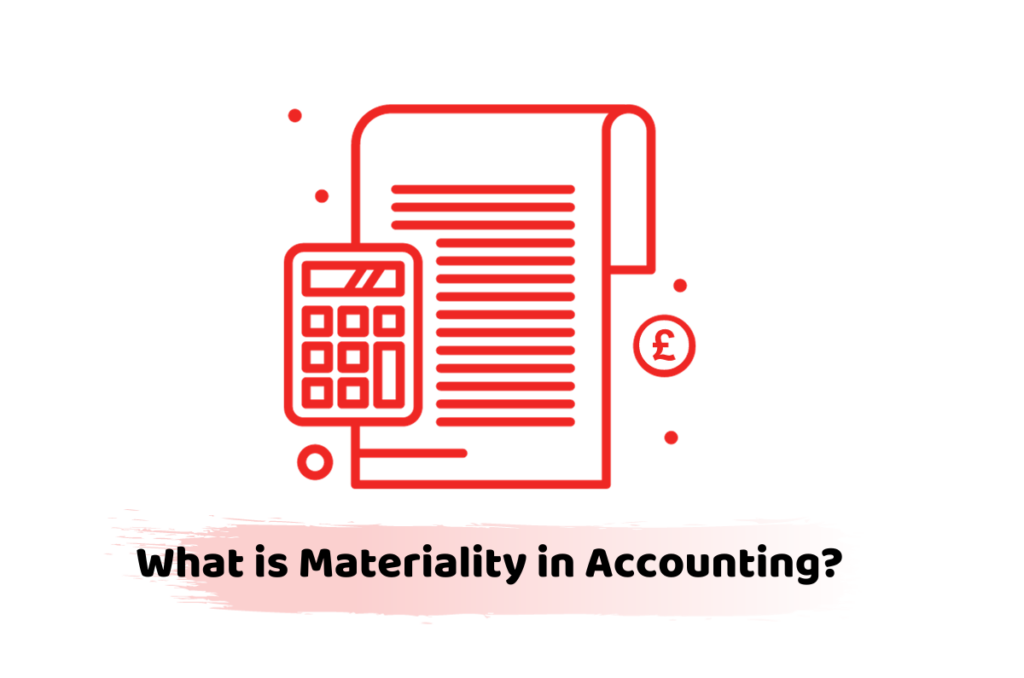Let’s dive into the fascinating world of materiality in accounting! Materiality is a concept that holds immense importance in the field of accounting. It refers to the significance or importance of certain information in financial statements. In simpler terms, materiality helps determine whether a particular piece of information is essential enough to influence the decisions of users of financial statements, such as investors, creditors, or other stakeholders.
Are you looking for accountants in London, visit Accotax!
What is Materiality in Accounting and how does it work?
Materiality is a fundamental concept in accounting that focuses on the significance or importance of information in financial statements. It helps determine what information should be included and disclosed to ensure that financial statements are accurate and reliable. In the UK, materiality is based on the principle that information is material if omitting or misstating it could influence the decisions of users of the financial statements. By applying the concept of materiality, accountants in the UK contribute to transparent and reliable financial reporting practices.
An Understanding of Materiality Assessment
Materiality assessment has quantitative factors including the monetary value of an item or transaction, while qualitative factors consider the nature and context of the information. The assessment is subjective and requires professional judgment, as there is no fixed threshold for materiality.
What are other accounting principles that are often linked to Materiality?
The principle of completeness is relevant when considering materiality. Materiality helps in determining what information is necessary to be included based on its significance. Lastly, the principle of conservatism is also connected to materiality. This principle suggests that uncertainties and potential losses should be recognised in financial statements, even if they are not yet realised. Materiality helps in assessing whether uncertainties or potential losses are significant enough to warrant recognition. Overall, materiality is intertwined with these accounting principles to ensure that financial statements are relevant, faithfully represented, complete, and conservative.
1- Reliability
Materiality plays a crucial role in ensuring that financial statements are reliable and trustworthy. This helps to prevent misleading or irrelevant information from overshadowing the key aspects of a company’s financial position and performance.
2- Completeness
Completeness is a crucial aspect of financial reporting, as it ensures that all relevant information is included in the financial statements. By applying materiality thresholds, accountants can identify and disclose material information while avoiding unnecessary clutter or immaterial details that may distract users. So, materiality acts as a guiding principle to ensure the completeness of financial statements, enhancing their usefulness and reliability.
What are the Common Materiality examples?
When it comes to materiality, several common examples can help illustrate its significance in accounting. One example is the omission or misstatement of a large monetary amount in the financial statements. If a significant dollar value is left out or inaccurately reported, it could have a material impact on the financial statements and mislead users. Another example is the failure to disclose a major liability or contingent liability. Materiality can also come into play when assessing the impact of errors or irregularities in the financial statements.
What is the difference between Material and Immaterial Information?
This means that material information has the potential to impact the economic decisions of investors, creditors, or other stakeholders. On the other hand, immaterial information is information that, if left out or inaccurately reported, would not have a significant impact on the decision-making process of users.
The Bottom Line
To wrap up this discussion on materiality in accounting, we can say that materiality is a fundamental concept that accountants use to determine the significance of information in financial statements. Accountants need to exercise professional judgment and adhere to accounting standards and regulations when assessing materiality. So, materiality is not just a technical accounting concept but a vital principle that ensures the credibility and usefulness of financial statements.
Optimize Your financial management, and contact us for access to the best UK accountants via Accotax!
Disclaimer: All the information provided in this article, including all the texts and graphics, is general in nature. It does not intend to disregard any of the professional advice.





















































